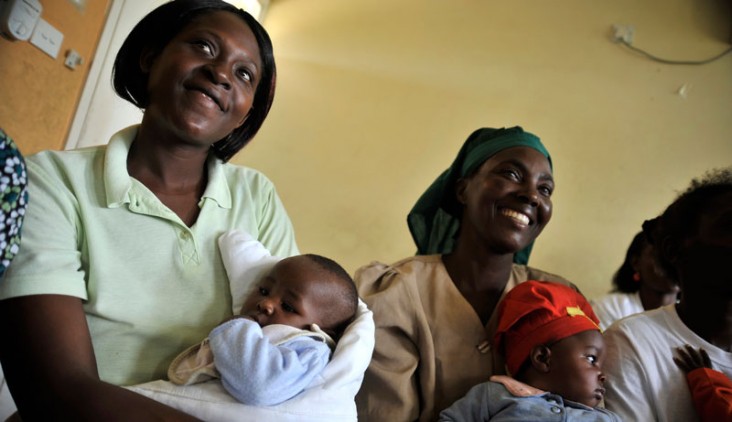- What We Do
- Agriculture and Food Security
- Democracy, Human Rights and Governance
- Economic Growth and Trade
- Education
- Ending Extreme Poverty
- Environment and Global Climate Change
- Gender Equality and Women's Empowerment
- Global Health
- Water and Sanitation
- Working in Crises and Conflict
- U.S. Global Development Lab

The U.S. Agency for International Development (USAID), through the support of the U.S. President's Emergency Plan for AIDS Relief (PEPFAR), named the International Partnership for Microbicides (IPM) as the recipient of a competitive award of up to $25 million over 5 years to expedite the potential licensure and market introduction of a new HIV prevention microbicide product for women on July 26, 2017. This award, which will specifically provide support around the roll-out of the IPM-developed monthly Dapivirine vaginal ring, seeks to further advance USAID's long history in research and development of safe, effective and affordable microbicides as a means to control the HIV/AIDS epidemic.
Today, women make up more than half of the more than 37 million people living with HIV, with young women accounting for more than 70 percent of new HIV infections among adolescents in sub-Saharan Africa. Microbicides include biomedical products that women can use to protect themselves against HIV infection. USAID, under PEPFAR, has been a long-standing investor in microbicide research, including support of Oral PrEP and of IPM's monthly dapivirine ring – the first long-acting, discreet, woman-controlled method for reducing the risk of HIV infection.
The Dapivirine ring was spotlighted at the 2016 Conference on Retroviruses and Opportunistic Infections, in which results presented from 2 large clinical trials, including the USAID-funded Ring Study, showed that the flexible silicone ring safely reduced the chance of HIV infection overall by 31 percent.
"Today's announcement reaffirms USAID's commitment to investing in microbicide research and development," said Benny Kottiri, USAID's Office of HIV/AIDS Research Division Chief, "and, most notably, reaffirms our commitment to developing sustainable HIV prevention methods that allow women to take control of their sexual health and reduce their risk of HIV infection."
As with all USAID-supported research investments, the Agency works to ensure successful microbicide introduction and access at the national, facility and end-user levels. Through the Microbicide Product Introduction Initiative (MPii), a consortium of five interconnected projects on antiretroviral-based HIV prevention products, USAID is working to mitigate potential challenges to microbicide introduction and access by: tracking critical gaps in health systems, evaluating harmful social norms associated with the use of HIV-prevention products, exploring the design and marketing of HIV-prevention products to influence interest and long-term use, and researching cost-effective and scalable delivery methods of such products.
Through this award, USAID will continue to support ongoing clinical trials, as well as IPM's further efforts to move the dapivirine ring through the regulatory approval process, including a submittal to the European Medicines Agency and anticipated applications to the U.S. Food and Drug Administration, the South African Health Products Regulatory Authority (formerly the Medicines Control Council), and other regulatory authorities in African countries with the highest HIV risk among women.
As more research continues, the potential for microbicides to prevent HIV infection remains promising. With women bearing a high risk for HIV, controlling the HIV/AIDS epidemic will mean empowering women with self-controlled methods to prevent themselves from acquiring HIV infection. Today's announcement recognizes the shared commitment of USAID, through PEPFAR, and IPM to ensure a safe, effective and accessible prevention method becomes available to all women most at risk of HIV.
Additional Resources
- Read IPM's official announcement
- Learn more about the Ring Study through USAID's press release and Impact Blog
- View the Dapivirine Ring Design Guide







Comment
Make a general inquiry or suggest an improvement.